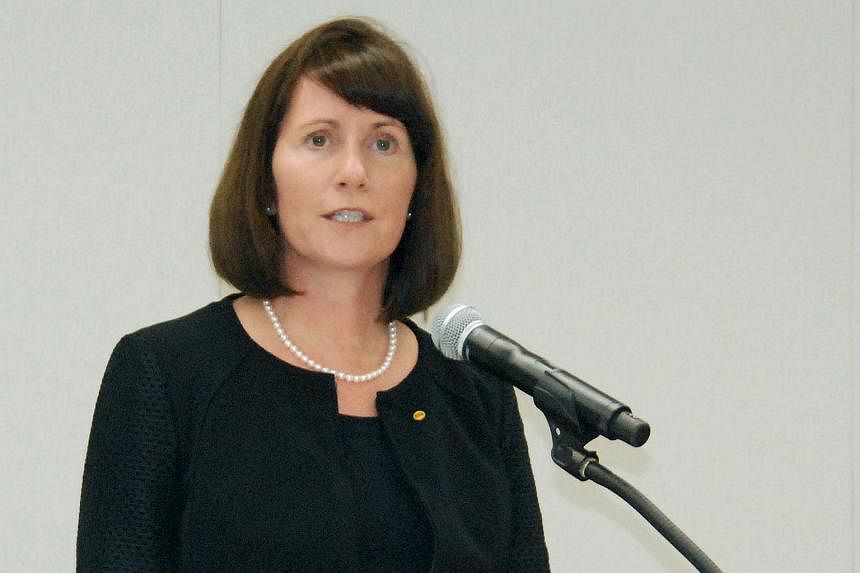TOKYO (BLOOMBERG) - Toyota Motor's first female executive lasted just 90 days in the job, resigning two weeks after a drug-related arrest and dealing a setback to President Akio Toyoda's efforts to diversify management ranks.
Julie Hamp, 55, Toyota's chief communications officer and one of the company's highest-ranking non-Japanese executives, gave notice of her resignation Tuesday. Toyota said a day later that it accepted the resignation, citing the concerns and inconvenience raised by her June 18 arrest for allegedly importing prescription painkillers that require prior permission before they can be brought into Japan.
The resignation of Hamp, an American, is a blow to Toyota's drive to make management ranks more international and accepting of female executives. It also deals a high-profile setback to Prime Minister Shinzo Abe, who has made empowering women a priority to help modernize and jumpstart the nation's economy, including calling on Japan Inc. to have women in 30 per cent of leadership roles by the end of the decade.
"Japan Inc. will suffer from this," Jeff Kingston, professor of Asian Studies at Temple University's Japan campus in Tokyo, said by telephone. Hamp's treatment by the police and local media "sends a chilling message to other foreign managers who might be considering a posting to Japan."
From Toyota to Sony Corp., Japanese companies succeeded on the world stage through the 1990s despite maintaining an insular management culture dominated by lifelong company salarymen. That closed business model began to show cracks as the economy struggled through two decades of deflation, prompting calls for companies to hire and promote outsiders for diverse ideas and skills.
"You had a lot of groupthink where everybody thought the same, and in the past that was seen as a great thing for Japan," said Chris Rowley, professor of human resource management at Cass Business School in London and Griffith University in Australia. "Now, it's seen as not such a good thing. You don't get a diversity of opinions when everyone goes along."
Toyoda called a press conference one day after Hamp's arrest to say he was confident she hadn't intentionally broken Japanese law. The company had pointed to her appointment as evidence that it was diversifying executive ranks, made up predominantly of Japanese men.
Tokyo metropolitan police arrested Hamp on suspicion she had imported the pain medication oxycodone, police spokesmen have said, asking not to be named in accordance with police department policy. Police can hold Hamp in jail until July 8 before prosecutors are required to decide on a potential indictment.
Hamp was named global head of communications for Toyota in April. She joined the company in June 2012 from PepsiCo Inc., where she was a senior vice president, and worked previously for General Motors Corp.

